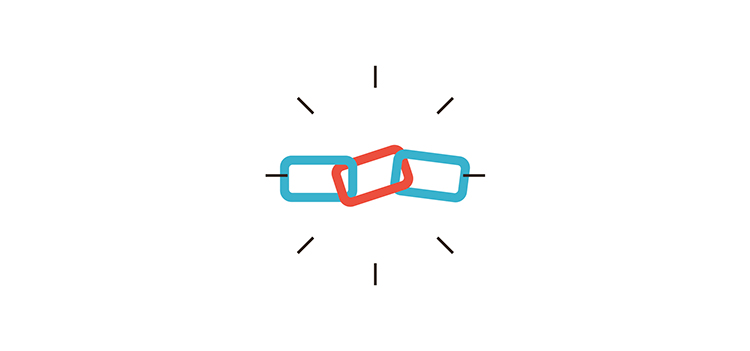Over the weekend, a large number of sites were hit with manual action penalties from Google. Although this isn’t the first time Google has issued unnatural link penalties, it’s interesting that this particular penalty is related to outbound links – meaning the source site was penalized, not the site that was being linked to.
I think Google is making a smart move by putting the onus on the site generating the links, rather than the destination site. When Google started to really crack down on link schemes, some SEOs felt that they made it easier for shady marketers to use negative SEO to hurt a competitor’s site. In my opinion, this is a fairer approach to policing link spam on the web because the site owner is more in control of their own fate.
According to Jennifer Slegg, the majority of the sites impacted were blogs, and many were in the food, décor, and craft related market areas (mostly lower competition niches).
Here is the message Google sent out to site owners:
Google has detected a pattern of links from your site to other sites that is either unnatural or irrelevant. This pattern attempts to artificially boost other sites’ ranking in Google Search results. Such unnatural ranking would cause search results to show preferences for results not relevant to the user’s actual query. It also violates Google Webmaster Guidelines. Therefore, we are discounting the trust in links to your site. This manual spam action has been applied to <site name>. To fix this, remove the unnatural links to your site and file a reconsideration request. After we determine that you have complied with our guidelines, we will remove this manual action.
Will penalized sites see a decline in organic traffic?
As of right now, there is no indication that the penalty will impact rankings or traffic. There hasn’t been an official statement from Google as to what specific links are being targeted, or if the penalties will result in a site being blacklisted, or demoted in the SERPs. So far, I haven’t seen any reports of a rankings loss due to the recent penalty. This could mean that rankings aren’t impacted all that much, or that it takes time for search results to reflect Google’s recent round of penalties. Although Google didn’t specify much in terms of rankings, they do mention that they will “discount” the trust of a site’s links. So this could potentially have a systemic impact on sites that have a large number of these links – especially sites that essentially relied on the authority passed through these links for rankings.
Does this change my current link building strategy?
Google has always been very clear as to what constitutes as an “unnatural link.” So if your current link building strategy sounds like it may be looked at as a link scheme, it’s probably time to update your methodologies. It’s always a good idea to disclose when links are paid/sponsored or promotional in nature. Aside from editorial links and manually acquired links (via link prospecting/outreach), site owners should avoid passing PageRank to urls in things like comments, directories, forums, badges, user profile pages, guest post bylines, and press releases. Also, make sure that you’re using rel=”nofollow” when appropriate.
What should I do if my site has been penalized?
In my experience, manual penalties are typically much easier to sort out than algorithmic penalties (such as Panda, Penguin, etc.). Depending on how much analytics data you have, diagnosing an algorithmic penalty can be difficult. Also, if your site is hit by an algorithmic penalty, you will need to wait until the algo refreshes or updates to see any signs of recovery. With manual action penalties, Google is usually clearer as to what aspects of your site violate their webmaster guidelines. In this case, your best bet would be to compile a list of all outbound links on your site. As far as I know, Google doesn’t offer an outbound link report, but you can use a tool like Xenu’s Link Sleuth to generate your own list. You can then either remove the spammy links, or add a “nofollow” tag to your outbound links. You can do this en masse using a nofollow meta tag, which would apply to your whole site, or you can only apply the tag to select urls (I’d recommend going this route). One you clean up your outbound link profile, you can then submit a reconsideration request to Google, with an explanation of what you fixed.
If you need to submit a reconsideration request, I’d recommend checking out this post by Marie Haynes, that outlines what you should include, and how long you can expect it take for Google to process your request.
If you received a manual penalty from Google and would like some extra help getting the penalty lifted, send us a message and we’ll be in touch.
Update: On April 12th, Google’s John Mueller confirmed that the manual action penalties were the result of sites using followed links in paid reviews – something Google has warned webmasters about in the past. You can see some of Mueller’s responses here, here, and here.


